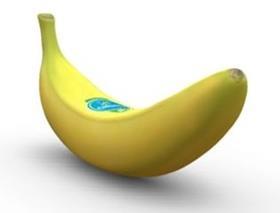
Fresh produce company Chiquita has formalised a partnership with German retailer Rewe aimed at protecting bio-diversity in the San San Pond Sak area of Panama's Bocas Del Toro province, close to the former's banana plantations.
The announcement was made on World Wetlands Day (2 February), marking the anniversary of the adoption of the 1971 Convention on Wetlands dedicated to the protection and conservation of what are regarded as unique and fragile environments.
Initially, the two companies will purchase and donate 120ha of pasture land located in the protected area in order to restore the area's natural habitat and also protect endangered manatees and sea turtles, in cooperation with local and international NGOs.
The San San project will be conducted in cooperation with the Panamanian authorities and civil society organisations such as local residents association Aamvecona and Panamanian environmental authority ANAM.
'This collaborative approach is crucial in helping the project achieve its aims, to deliver significant benefits both for the community and the environment in a place where abundant bio-diversity is threatened and human activity can either conserve or devastate the fragile tropical environment,' the companies said in a joint statement.
Community initiatives will include developing environmental education programmes and creating additional income opportunities for the local community.
At the official announcement of the agreement, in the presence of several thousands Rewe employees, the company's CEO expressed his satisfaction at having forged a new commitment to sustainability within the company: “I am delighted that we are announcing this innovative project when we are also launching Rewe’s company-wide commitment to sustainability,' he said.
The initiative follows in the footsteps of the Nogal Nature & Community Project, a pilot project begun in 2004 in Costa Rica as a public-private partnership between Chiquita, Swiss retailer Migros and development group GTZ aimed at protecting bio-diversity with community involvement.
The Nogal project was established in 2003 and three years later the Costa Rican government passed a decree making it an official wildlife refuge.
“In this new initiative we can apply the lessons learned during our years of working with the Rainforest Alliance certification programme, as well as valuable experience gained from the Nogal Nature & Community Project,' said George Jaksch, senior director of corporate responsibility and public affairs at Chiquita.
He added: 'Of particular relevance is the understanding that long term conservation of endangered species and ecosystems is not possible without the support and participation of the local community. We are privileged to be a partner in this new endeavour and will make every effort to ensure we meet the objectives we have established.”
The partnership foresees an initial commitment of three years, during which several initiatives are expected to be developed.
An environmental education programme to be coordinated with the Panamanian ministry of education has already been planned and will extend to more than 20 primary and secondary schools in the region, as well as to local communities and Chiquita employees.
Local community leaders are also currently involved in the design of a programme to create and support small businesses. Some of the identified opportunities include handicraft based on local customs and traditions or support activities to eco-tourism.



